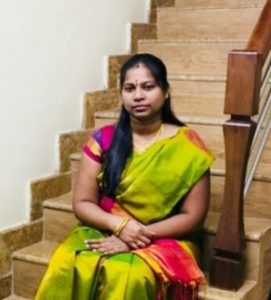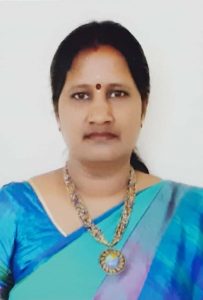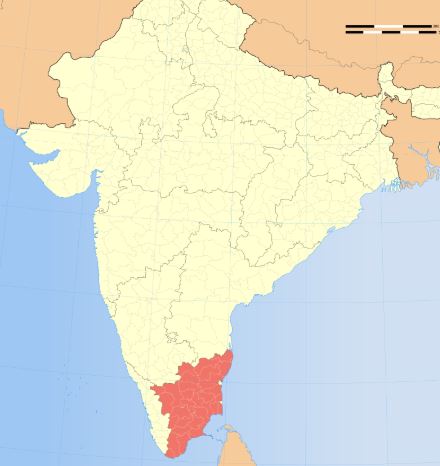Tamil Nadu, India
WiRED CHW Training Program Debuts in India
Nursing Instructors Report Success
By: Allison Kozicharow; Edited by Jessie Crowdy
More than 1,435,000 cases of COVID-19 have been reported in India, the third highest global numbers following the U.S. and Brazil. In the midst of the pandemic, WiRED International is nearing completion of our Community Health Worker (CHW) Training Program training in India, led by two senior nursing instructors, professors Gandhimathi and Sivagami.
The World Health Organization (WHO) sounded the call to train CHWs to serve low-resource communities where doctors and nurses are scarce or non-existent.
A group of students in the Tamil Nadu region of India, led by senior nursing instructors from the area, are in their final week of WiRED’s accredited and comprehensive course. The class is usually taught face-to-face, as was the case in Kenya; however, during this coronavirus pandemic, WiRED adapted the training to be taught online and expanded the program to reflect the pandemic-heightened demand for CHWs.

Nursing professors Gandhimathi and Sivagami led the first online training session of WiRED’s CHW program. They reported that although in-person learning is preferable, the virtual course worked well during the current virus lockdown. The trainers offered the following feedback on the CHW course:
“The contents are concise and clear. Very easy to understand by the trainees. Content covers all aspects of the topic. Quizzes within every module keeps the learners active and alert. I feel these materials will help the CHWs to work in the field successfully. Practical aspects of the module with videos help the students to work actively in the field.”
– Professor Gandhimathi
“Contents are concise, clear and well organized, simple, and it made our work easy. The content is adequate and explained with relevant pictures. I was very much impressed with the quiz which was included after few slides as well as the final quiz. This helped us to do summative as well as formative evaluation of the participants. I feel these materials will definitely help the CHWs to work in the field successfully. Practical aspects of the module with videos helps the students to work actively with a lot of confidence in their skill and knowledge. After this training they can work independently.”
– Professor Sivagami
WiRED asked the trainers if the knowledge the CHWs will gain from the course was culturally appropriate, adaptable and relevant to their local health issues. They both answered that it is. The flexibility of the program allowed them to modify course content when appropriate to make it even more applicable to their communities.

The trainers faced some challenges, including teaching a group with different levels of maturity, educational background and language barriers. Also, some technical difficulties and the lack of group work or interaction had to be overcome due to the online nature of the course. Many of the issues these trainers and students encountered in the CHW training are also challenging educators around the world now using online instructional methods. Despite these issues, both instructors underscored their belief in the overall success of teaching the WiRED CHW material online.
WiRED will soon begin the CHW training program in Peru and Nicaragua. Feedback from those sessions will be invaluable to WiRED as we broaden the geographic reach our materials. As the world continues to experience the devastation of COVID-19, it is more vital than ever to train CHWs to protect the health of the people in low-resource communities where they serve.
What is unique about WiRED’s CHW program?
 WiRED’s CHW program can change to meet desperate times, such as the COVID-19 world crisis. We swiftly changed our in-person training conducted in Kenya pre-virus this past February to a current online training in India this July.
WiRED’s CHW program can change to meet desperate times, such as the COVID-19 world crisis. We swiftly changed our in-person training conducted in Kenya pre-virus this past February to a current online training in India this July.- WiRED’s online CHW training works and is being measured. Lack of a physical classroom should not be allowed to prevent health information and knowledge from reaching underserved communities. Our online program allows CHWS to be trained where and when they are most needed.
- WiRED designed the CHW program to be geographically and culturally adaptable. We supply the program materials and train doctors and nurses. They conduct the actual CHW courses, so training is always in their hands. While observing correct scientific guidance, trainers can adapt our WHO-compliant materials to local conditions, and, in turn, the graduating CHWs can fine tune the health programs to meet their communities’ needs.
- WiRED’s CHW program also comprises continuing health education for CHWs. We administer a Continuing Health Worker Education (CHWE) program to maintain the proficiency and increase the skills of CHWs after they complete the basic training course. The CHWE program offers critical information they will need for impending epidemics (e.g., COVID-19) as well as persistent noncommunicable diseases (e.g., diabetes).
- WiRED’s CHW program is free of charge. WiRED raises funds to cover the costs of this program so that students in the world’s neediest areas are not burdened with fees. Moreover, in most cases the participants are provided with stipends while they study, to help offset their expenses.
Meet the Trainers
Professor Gandhimathi
Professor Gandhimathi is a teacher at the Sri Narayani College of Nursing. She received her B.Sc. in Nursing and her M.Sc. in Community Health Nursing from Sri Ramachandra University. She said, “This nursing profession gives me a joy to serve to the needy and also it gives me job satisfaction.” She is married to a civil engineer and has a son. She enjoys cooking, gardening and feeding birds.
Professor Sivagami
Professor Sivagami brings 19 years of experience in community health nursing. Currently, she is a teacher at the Sri Narayani College of Nursing. She is the first person in her family and community to enter a professional field. She received her B.Sc. in Nursing from Sri Ramachandra Medical College & Research Institute and her M.Sc. in Community Health Nursing from Manipal College of Nursing. She was called to nursing to serve the needy and gain job security. She enjoys arts and crafts activities such as glass and fabric painting and writes stories and poems.


